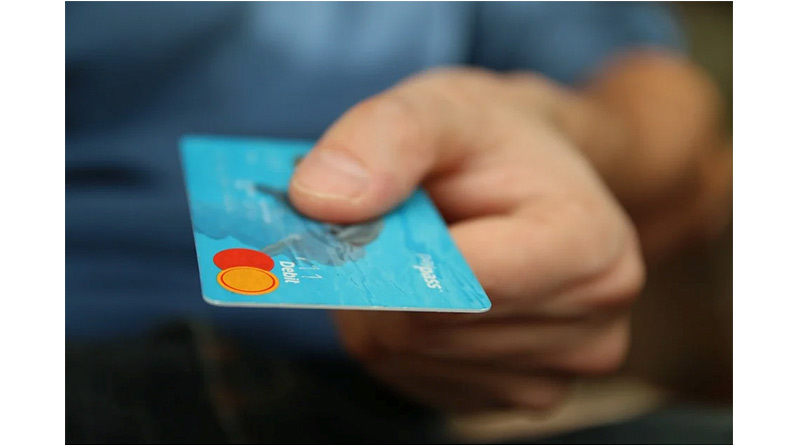Hospitality Spending 70% Down On Pre-Pandemic Levels Reveals Report

Spending in the hospitality sector remains 70% less then pre pandemic levels according to a report by the Office for National Statistics (ONS).
The report analysed the covert pandemic’s impact on UK hospitality between January 2020 and June 2021 and revealed a confidence of business survival within the sector started to increase in may what remains low.
the data revealed that in May 2020 at the height of the first lockdown turnover within the sector was in the region of £1.2 billion, compared to £3.4 billion in March 2021 which was the final month of England’s third lockdown.
Turnover increased in may 2021 two almost £7 billion (£6.9 billion) after restrictions were partially lifted permitting indoor dining, these were the highest figures since August 2020 however it is still 25% lower then 2019 level.
The BBPA says the findings are further evidence of just how hard the hospitality sector, including beer and pubs, have been hit by COVID-19 lockdowns and restrictions, and that investment is now needed in the sector for growth which help build back stronger communities and more jobs.
In line with the beer and pub sector’s Long Live The Local campaign, the BBPA is urging the Government to invest in the sector through the reform of VAT, Beer Duty and Business Rates which unfairly penalise pubs.
Emma McClarkin, Chief Executive of the British Beer & Pub Association, said:
“This ONS study is yet further evidence of just how devastating the pandemic has been for hospitality.
“The recovery of our sector has only just begun now restrictions have been lifted, but these ONS figures show far our sector has to go to return to viability.
“The numbers are clear – more investment is needed now for our sector so it can play a leading role in building society and the economy back better. The Government must do this by reforming VAT, Beer Duty and Business Rates by which pubs and other hospitality businesses are greatly overtaxed.
“We urge those who want to see hospitality and pubs recover to support the Long Live The Local campaign and sign the petition at https://www.longlivethelocal.pub./. Investment in our sector can help the country build back better with stronger communities, more jobs and a boost to villages, towns and cities across the country.”
Kate Nicholls, CEO of UKHospitality said:
“These figures from the ONS highlight how the pandemic has uniquely hit the hospitality sector and it’s devastating consequences for businesses across all parts of the market. While ‘Freedom Day’ sees 12,000 venues finally open their doors and the sector operate viably for the first time in 16 months, hospitality is far from out of the woods.
“For the sector to enjoy a sustainable recovery, Government will need to continue working closely with us in order to put in place the right trading environment including measures such as the extension of the business rates holiday until at least October, allowing firms to bounce back strongly, and to rebuild fragile consumer confidence. With the right support, hospitality can be at the forefront of the nation’s economic recovery, creating jobs and reviving our high streets and city centres.”
Kate Allen, owner at luxury holiday lettings company, Salcombe Finest: “The hospitality sector is definitely starting to recover but the major challenge for all the businesses in it is the frankly ludicrous Test and Trace app. This ill-thought out and expensive piece of tech is screwing us over and kicking us down just as we were starting to get up. We have team members dropping like flies and it is simply unsustainable. It’s no surprise the app is being deleted in the hospitality industry faster than a U2 album on iTunes. Coastal hospitality businesses make between 70% to 80% of their annual turnover in the next six weeks during the school holidays. If the app isn’t abolished right now, our window of opportunity will be gone.”
Craig Bunting, owner of Derby-based coffee shop, Bear: “We’ve reached Freedom Day but for most businesses in the hospitality sector the Test and Trace app is an outright farce. It’s destroying us, just as we are getting back to our feet. While various Government schemes have provided a degree of support to hospitality businesses, the cost of the pandemic is still immense, both financially and psychologically. We now have to bounce back mentally exhausted and saddled with debt.”
Jo Ferreday, director of Market Harborough-based events company, Sheer Edge: “The pandemic has changed the way that all businesses operate, but the hospitality and events sector has most definitely been one of the hardest hit. In March 2020 I wondered how on earth our 5-year old business would survive, given that 90% of the revenue we generated at the time was through corporate hospitality booking and event support services, which evaporated overnight. Fortunately, we adapted and were able to support our clients in their transition to running events virtually. The main theme in the hospitality and events sector right now is the shift to hybrid events, a model that is likely to remain popular in the short to medium term, as the uncertainty generated by new Covid-19 variants lingers.”
Maddy Alexander-Grout, founder of the Southampton-based small retail business national discount scheme, My VIP Card: “I’m not sure the hospitality sector will ever be the same again. It has been turned inside out by the pandemic and it will take years for the scars to heal. Many of the businesses we support are within the hospitality sector and their experience of the past 16 or so months has been brutal. Even though the economy is now open, there is still a lot of caution among the public and this will prevent a rapid recovery for hospitality businesses. There’s a long road ahead.”
